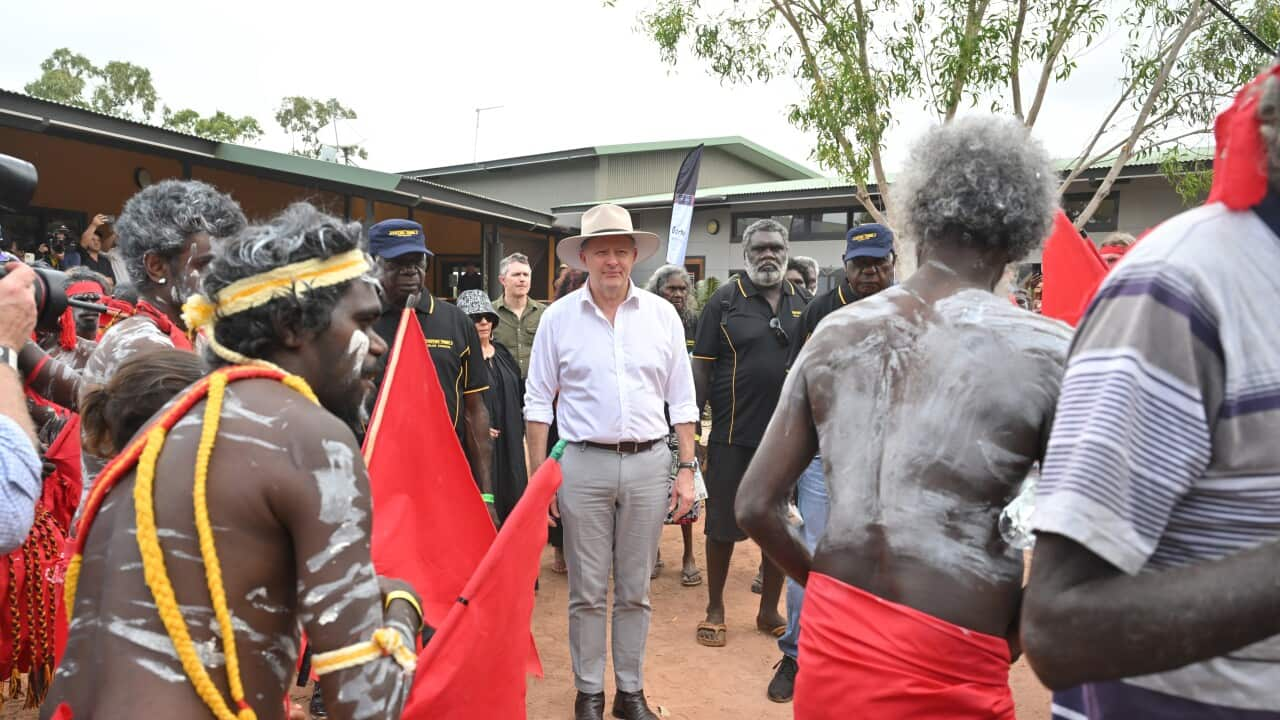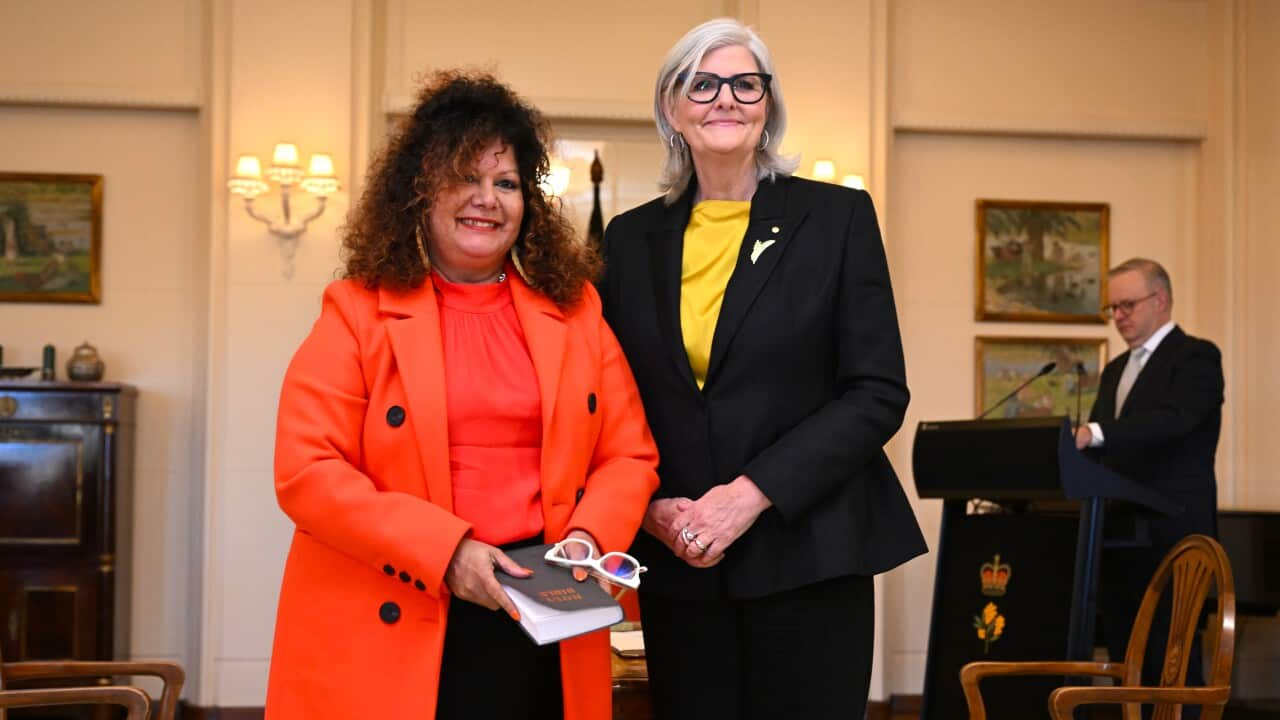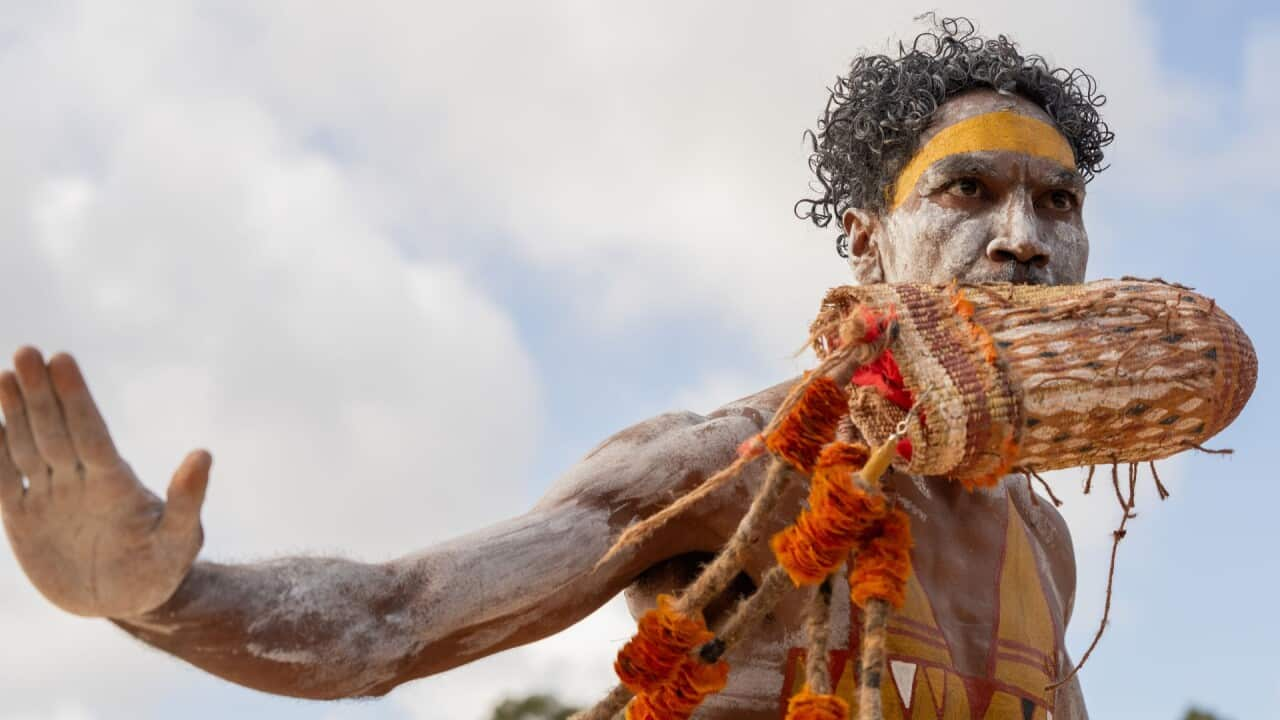In 2023, Garma Festival was rapturously anticipating the Voice to Parliament referendum.
Just a year on, and a more muted affair has also seen tempered language on the Uluru Statement's remaining elements.
Arriving to the annual ceremony on Friday, Anthony Albanese was greeted by colour and movement, with yidaki players and dancers performing at the bungul ground to welcome him.
The prime minister will give the festival's keynote address today, where he is expected to outline his priorities for First Nations affairs in the wake of the referendum's defeat.
The global demand for critical minerals and rare earths, abundant in parts of the Northern Territory, represents an opportunity for economic empowerment, he will say.
"This is the biggest change in the global economy since the Industrial Revolution," an advance copy of the speech says.
"And it also represents the best chance Australia has ever had to bring genuine self-determination and lasting economic empowerment to remote communities.
"New clean energy projects, new defence and security projects, new processing and refining facilities can all unlock new jobs and prosperity for Indigenous communities."
In line with comments made by incoming Indigenous Affairs minister Malarndirri McCarthy on Friday, Mr Albanese said the government's position on the Uluru Statement had not changed.
"We remain committed to Makarrata, that powerful Yolngu word gifted to the nation, for a coming together after a struggle.
"And we will continue to engage in good faith with leaders and communities to decide what the next steps should be at a national level."
But he seemed content to let the several treaty processes underway around the continent to play out before driving a national agreement.
"And my Government’s determination to work with you is as strong as ever.
"In this, we welcome the work State and Territory governments are doing to advance treaties, agreement-making and truth-telling processes.
"Every approach is different, that is a good thing."
Dutton promises no Makarrata, no treaty
Speaking at a Garma forum, newly appointed minister for Indigenous Australians Malarndirri McCarthy said she was committed to bipartisanship in pursuing improvements for First Nations peoples.
While she said the government's position on Makaratta and Treaty had not changed, her comments focused elsewhere.
"It's time to reach across the political divide and ensure that Indigenous Affairs isn't the political football that we have seen," the Yanyuwa woman said.
"That means [working with] the Coalition, the Greens, the Teals. It even means One Nation.
"Let's look at Closing the Gap targets. There are so many targets that are not being met."
Speaking at a press conference in Western Australia on Friday, Peter Dutton, a vociferous Voice to parliament opponent, stated his firm opposition to the other Uluru Statement pillars.
"To the people of WA, under the government I lead there will be no Makarrata, there will be no revisiting of truth-telling, and the $450 million dollars the government wasted on the Voice was an outrage," the Leader of the Opposition said.
It follows news yesterday that the Chairman of Yothu Yindi Foundation, Djawa Yunupingu, had personally invited Mr Dutton to Garma, .
No Coalition representative has attended the festival this year.
'They want to control us'
Garma, the annual celebration of Yolngu life and culture, is also one of the biggest events on the continent's First Nations calendar.
This year's festival follows not only the defeated Voice to Parliament referendum, but also comes in the wake of news this week that many of the Closing the Gap targets are not improving, and even deteriorating.
The Productivity Commission, which delivered the news in its annual report, said the areas with the most promise were those which were engaging in shared decision making.
They want to try and control us. They can't help themselves.Djapu Elder Yananymul Mununnggurr
However, Djapu Elder Yananymul Mununnggurr said there was an absence of such collaboration in the Northern Territory, which recorded the worst results.
"There's no such thing as shared decision making that exists," the Elder told the gathering.
"We've been asking for that ... But we are not there yet."
"They keep holding on to us. They want to try and control us. They can't help themselves."
Addressing the minister directly, Yananymul Mununnggurr said the lack of community control was obvious in the fight for housing, something the Elder said she had fought for for a long time.
"When it comes to the federal government, being honest here ... there's nothing nothing in place.
"When it comes to housing for homelands, that decision making is in Darwin," she said.












